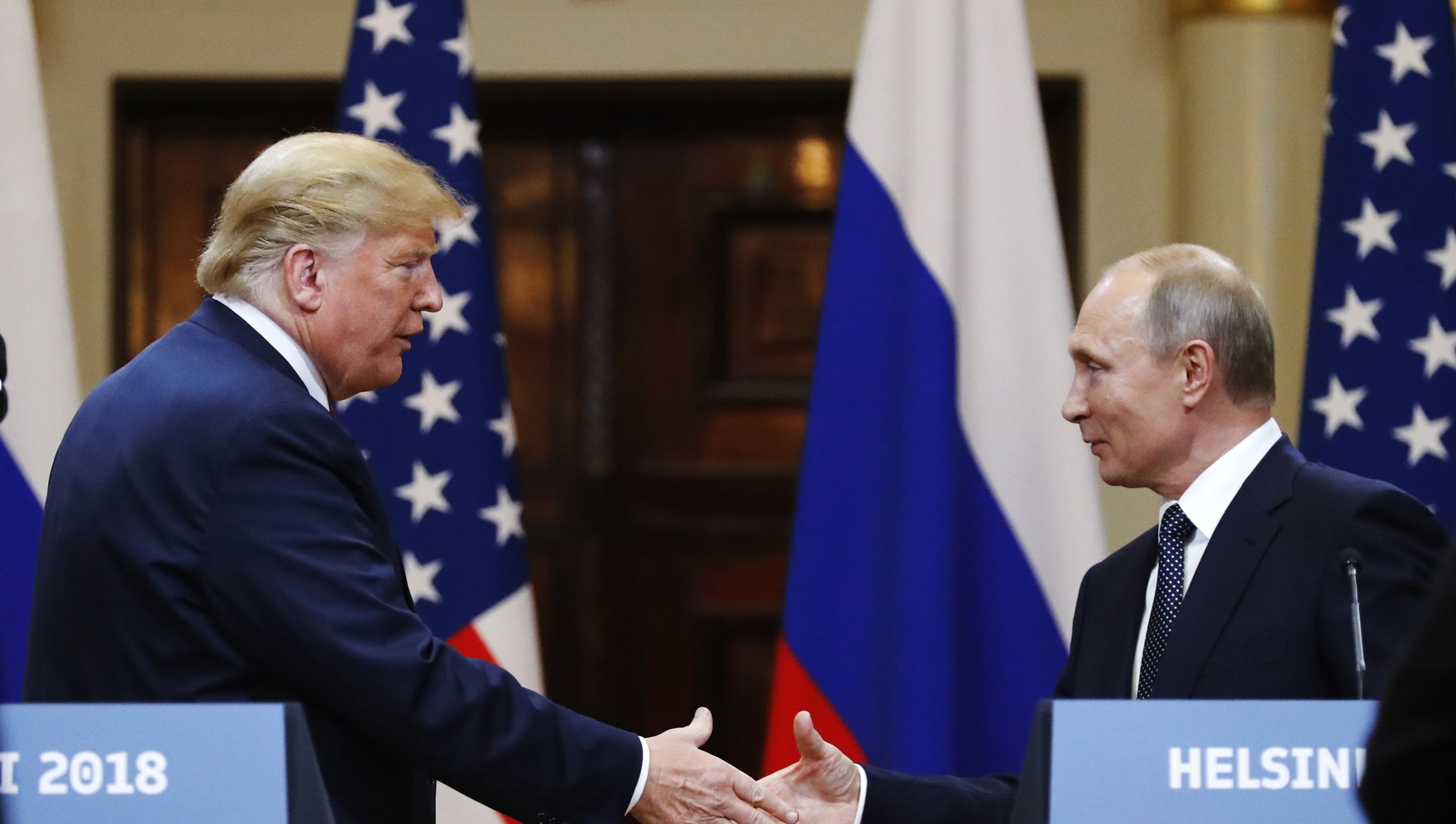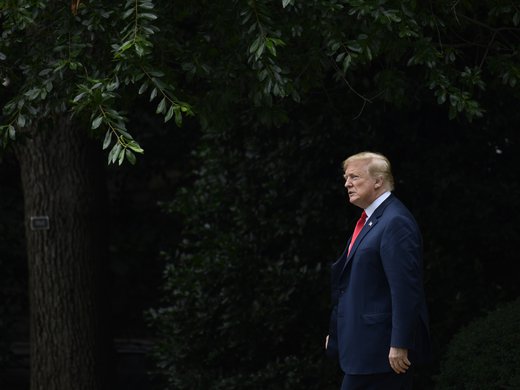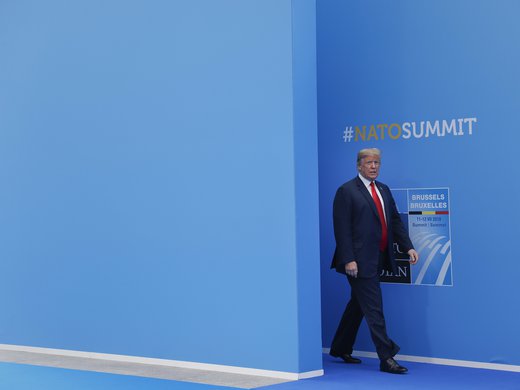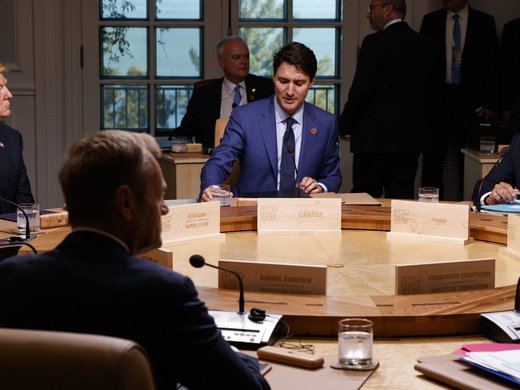The United States survived a president who rarely talked (Calvin Coolidge), but the question today is whether the grand republic can withstand a president who never listens. The cavalcade of recent horrors – from the disarray at the G7 in Quebec’s Charlevoix, to the tumultuous NATO Summit in Brussels and the erratic bilateral sessions in London and Helsinki – has destabilized global affairs and reduced the image of the U.S. president to unrelenting punchlines on late-night TV. Feeble attempts to rewrite the syntax from the Helsinki humiliation have done little to redress the damage. When these did not work, Donald Trump chose to double down, extending an invitation to Russian President Vladimir Putin for a do-over at the White House this fall.
Attacks on the United States' closest allies, which Mr. Trump now sees as foes, are forcing European Union members, Japan and others to look for leadership and remedies beyond Washington – even though the available talent pool is meagre. Even when Mr. Trump has a valid point, such as lax spending by most North Atlantic Treaty Organization members, and the risk of Germany’s excessive dependence on a pipeline from Russia, he drowns his concern with abusive invective and flat-out lies.
Meanwhile, the United States’s more customary foes – from Moscow to Pyongyang – are chortling with the new avenues of exploitation given them at no cost by a narcissistic leader who never tires of looking into his own mirror, behaviour that is clearly more appealing than time devoted to complicated briefings.
Mr. Trump’s initiatives on the home front have helped boost economic growth, but his shambolic approach to global affairs may overwhelm even that success. His withdrawal from the Trans-Pacific Partnership was a strategic blunder that undermined his country’s ability to constrain its principal economic rival – China. His tariff war on virtually everyone shows the United States' economic clout at its worst, but is beginning to cause casualties at home as well as abroad. The Republican chair of House sub-committee on trade declared that “the damage [to the United States] is entirely predictable.”
The self-proclaimed master of the art of the deal has yet to produce anything positive on the trade front. His naive flirtations with North Korea’s Kim Jong-un and Mr. Putin have flopped embarrassingly at home and abroad, emboldening more bad actions by notoriously determined adversaries. He desperately needs a win on the global stage, but desperation is not the best motivator.
The global trading system is being rocked by a tariff war that shows no sign of stopping. Security commitments once seen as sacrosanct assurances of stability are now a matter of genuine doubt. When the United States feeds uncertainty on both, there are no alternative shock absorbers.
No one really knows where all this is headed. Senior officials in Washington simply shrug and say, “Only the President really knows.” Some, like director of national intelligence Dan Coats and Defense Secretary James Mattis remain presumably more out of patriotism than blind loyalty, but even that commitment may have its limits.
US business leaders are extraordinarily shy about airing concerns about Mr. Trump’s mercantilist lunges into protectionism. They, like many Republicans, fear the wrath of presidential tweets.
Democrats, meanwhile, hope for a miracle from special counsel Robert Mueller’s investigation, but whatever he concludes will be tarnished by the checkerboard of political intrigue that has sullied the integrity of the Federal Bureau of Investigation, an institution Mr. Mueller once led.
Some suggest Mr. Trump’s bobbing and weaving about Russian meddling are driven by his obsession to refrain from anything that would delegitimize his 2016 election victory. Ironically, his evasions of accepted facts may have the opposite effect.
Sadly, serious alternatives to Mr. Trump have yet to emerge. Both major parties are divided among themselves. Extremists in both parties nullify the prospects of sensible compromise on policy.
Chaos will continue as the order of the day in Washington, but the Master of Disruption is also the Master of Distraction. Before the latest frenzy over his abject performance in Helsinki abates, Mr. Trump will have found a new target to pummel or celebrate.
Erstwhile allies such as Canada have little choice other than to sharpen their defences, hunker down against the storm and seek to dilute their dependence on the United States wherever practical.
We also need to recognize that the seeds of discontent in the United States that Mr. Trump is fertilizing will continue to bear fruit after he leaves the White House. Attitudes about US leadership and alliance solidarity will never be the same.
This article first appeared in The Globe and Mail.



